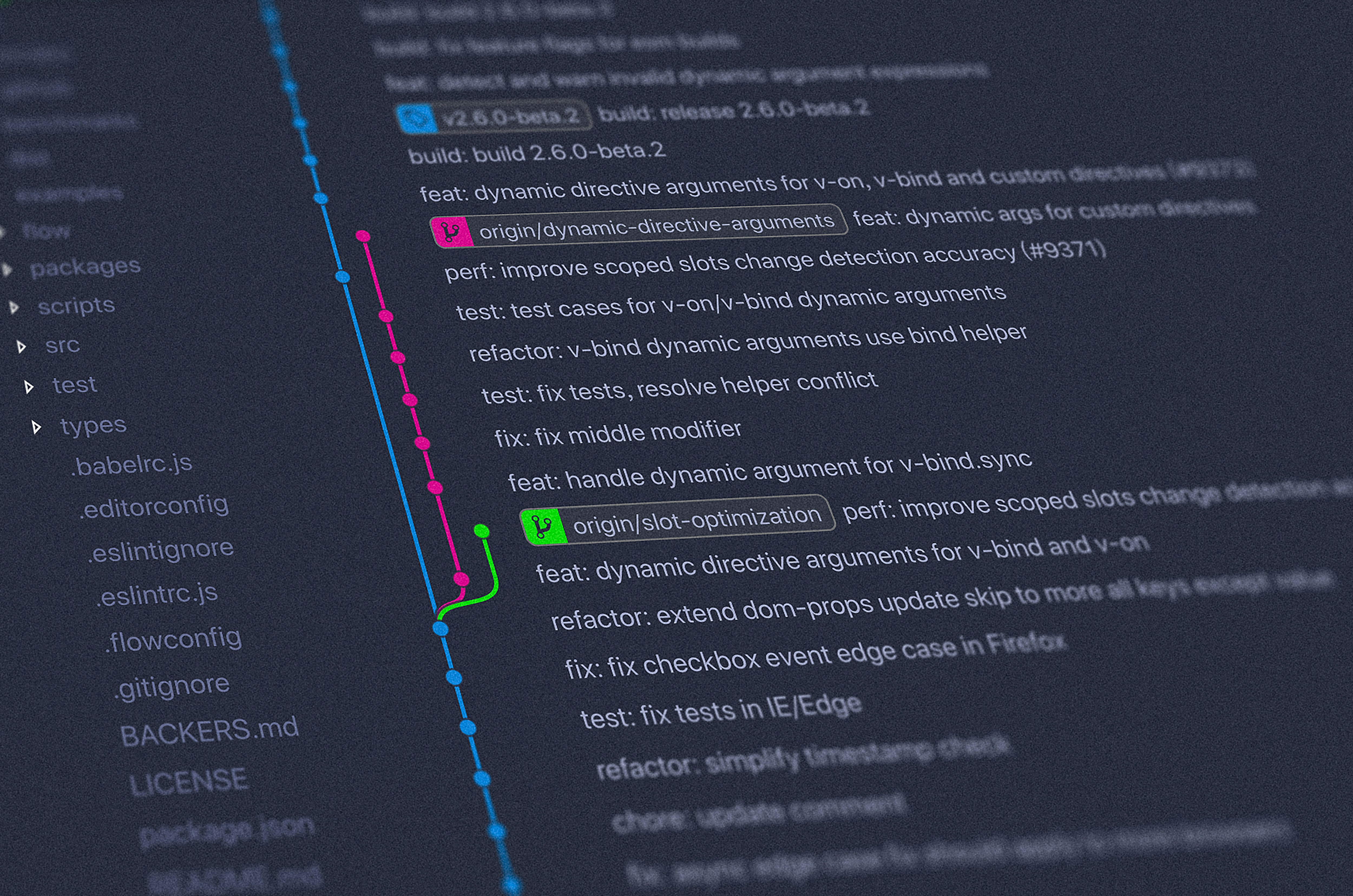26 Leading AI Code Optimization Platforms You Should Know
AI code optimization can revolutionize the way developers work, with AI copilots generating and optimizing code in real time. The power of AI code optimization can save time and improve the efficiency of software development, making the process smoother and faster. In this blog, we will explore the benefits of AI code optimization, the tools available, and how to optimize your code using AI copilots, helping you level up your coding game.
What Is AI Code Optimization?

AI tools are invaluable in analyzing code bases and identifying inefficiencies or redundancies that can be streamlined, leading to improved performance and resource utilization. By automatically detecting areas for refactoring, developers can optimize their code for efficiency and reduced resource consumption.
Bug Detection and Security Analysis
One of the most significant benefits of AI in coding is its ability to pinpoint potential bugs and security vulnerabilities before they become critical issues. By comparing code against a vast database of known problems and best practices, AI tools can identify patterns or code fragments that historically cause bugs or security breaches. This proactive approach helps developers mitigate risks and prevent future issues.
Codebase Suggestions and Improvements
Beyond identifying problems, AI tools actively suggest improvements by recommending better coding practices, more secure functions, or more efficient algorithms based on a comprehensive analysis of successful codebases. These intelligent suggestions provide developers with insights that can enhance their codebase and overall performance.
Performance Enhancement
AI tools can analyze code for performance bottlenecks and suggest optimizations that boost software speed and responsiveness. These improvements are crucial for user experience, especially in high-load scenarios, and can significantly impact overall performance.
Learning and Evolving with Usage
AI tools have the unique ability to learn and adapt over time as they encounter more code. With exposure to a wide range of codebases, these tools become increasingly sophisticated, offering developers more accurate insights and guidance for optimizing their code.
Key Components of AI Code Optimization

Static Code Analysis: The Backbone of AI Code Optimization
Static code analysis is the foundational step in AI code optimization. It involves scrutinizing the code without executing it, highlighting issues like syntax errors, coding standards violations, and security vulnerabilities.
This method is particularly beneficial for large and intricate codebases. AI algorithms can quickly scan through thousands of lines of code, pinpoint potential issues, and provide detailed reports for improvement recommendations.
Dynamic Code Analysis: Understanding Code Behavior
Dynamic code analysis is quite different from static code analysis. It involves executing the code and observing its behavior to identify runtime errors, performance issues, and other problems that might not be evident from the code itself.
Understanding how the code interacts with external systems and resources is crucial for dynamic code analysis. This provides a comprehensive understanding of the code’s behavior, enabling AI to offer more informed and accurate recommendations.
Rule-Based Systems: Maintaining Coding Standards
The rule-based systems use predefined rules to analyze the code and pinpoint potential issues. These systems ensure that the code adheres to established coding standards and best practices. One common example of rule-based systems is a linter, which checks code for syntax errors and deviations from coding style guidelines.
Natural Language Processing (NLP) Models: AI-Powered Code Reviews
NLP models are at the core of AI code review. These models are trained on extensive datasets of code, learning to recognize patterns and anomalies that indicate potential problems or inefficiencies.
With time, these models become adept at identifying and resolving issues in the code. They can learn from the feedback and corrections provided by human reviewers, continually enhancing their performance.
Large Language Models (LLMs): Next-Gen Code Review
AI code review tools are now starting to incorporate Large Language Models (LLMs) like GPT-4. These models can understand the structure and logic of the code more deeply than traditional machine learning techniques, which helps in identifying more nuanced anomalies and errors.
LLMs can generate human-like comments and explanations for the code, enhancing the review process's clarity and accessibility to developers. Being language-agnostic, LLMs can work with virtually any programming language, making them versatile tools in code review processes, handling diverse codebases efficiently.
Related Reading
10 Benefits of AI Code Optimization

1. Enhanced Error Detection
AI is highly proficient at identifying common coding errors, such as null pointer exceptions, memory leaks, and boundary condition problems. Its ability to catch these errors early reduces the likelihood of defects reaching production, resulting in more reliable software.
2. Comprehensive Security
AI code reviewers excel at detecting security vulnerabilities, including potential entry points for cyberattacks. They can recommend patches and coding practices that bolster the software’s resilience against security threats, helping protect sensitive data and user privacy.
3. Efficient Resource Utilization
By automating routine code reviews, AI frees up valuable developer time. Developers can redirect their efforts toward more complex, creative, and strategic tasks, such as architectural design and innovation.
4. Scalability Without Resource Expansion
AI-powered code reviews are highly scalable. As project sizes grow, teams can handle the increased workload without the need for proportional expansions of human resources. This scalability is particularly advantageous for organizations with fluctuating development demands.
5. Consistent Code Quality
AI maintains a consistent standard of code quality throughout a project. It enforces coding standards, best practices, and company-specific guidelines consistently, promoting uniformity in coding style and practices across the entire development team.
6. Reduction in False Positives
AI code reviewers, when properly tuned, can significantly reduce the occurrence of false positives compared to manual reviews. This means developers spend less time investigating and addressing issues that aren’t actual problems, boosting productivity.
7. Increased Code Review Coverage
AI can efficiently analyze and review a higher percentage of the codebase, including areas that might be overlooked in manual reviews. This extended coverage reduces the risk of undiscovered issues surfacing later in development.
8. Faster Time-to-Market
The speed at which AI conducts code reviews accelerates software development cycles, leading to quicker time-to-market for software products. This agility is a competitive advantage in rapidly evolving industries.
9. Enhanced Collaboration
AI code reviewers provide objective assessments, reducing subjective biases that can sometimes emerge in human code reviews. This fosters a more collaborative and constructive atmosphere within development teams.
10. Continuous Improvement
AI-driven code review tools learn and adapt from each review. They gain insights from historical data and developers’ actions, improving their ability to identify issues and provide recommendations over time. This continuous learning benefits code quality and development efficiency.
26 Popular AI Code Optimization Tools & Platforms

1. Omnipilot
Omnipilot is an AI tool that enables users to harness the power of AI on MacOS, making everyday tasks easier by providing intelligent assistance through its MacOS AI Copilot. Users can enjoy features like automated email writing, fluent Bash support, and effortless team updates, enhancing productivity and efficiency on the MacOS platform.
Omnipilot.ai offers a free download of its MacOS AI Copilot, giving users immediate access to its AI-driven functionalities.
2. GitHub’s CodeQL
CodeQL, a product by GitHub, is an AI-powered static analysis tool designed to enhance code security by automatically identifying vulnerabilities in code repositories. Beyond detection, CodeQL provides developers with suggestions and patches for fixing identified vulnerabilities. By proactively addressing security concerns, CodeQL significantly contributes to the overall security of software projects hosted on GitHub.
3. Google’s DeepCode
DeepCode, created by Google, is an advanced AI-driven code review tool that focuses on providing intelligent suggestions for code improvements. By analyzing coding patterns, styles, and best practices, DeepCode assists developers in writing cleaner and more efficient code. This tool not only reduces errors but also accelerates development processes by automating code enhancements.
4. IntelliCode
IntelliCode, developed by Microsoft, enhances the code review process by offering AI-generated code completion suggestions and recommendations. By analyzing contextual information and coding patterns, IntelliCode boosts developer productivity by accelerating the code-writing process with fewer errors. This tool seamlessly integrates with popular development environments like Visual Studio, ensuring a smooth and efficient coding experience.
5. Useway
UserWay’s Fix My Code is an AI-based tool aimed at optimizing code to meet WCAG 2.1 AA standards. By pasting code or entering a command, users can benefit from enhanced code accessibility for individuals with disabilities. Fix My Code assists in creating accessible login forms, popups, nav menus, and more. It is essential for users to avoid sharing sensitive information while using this tool and thoroughly test their code before deployment.
6. Kite
Kite is an AI-powered coding assistant that provides real-time code completions and suggestions to expedite coding processes. This tool aids in predictive coding and reinforces good coding practices for developers, enhancing overall coding efficiency.
7. Sourcery
Sourcery is a code refactoring tool that automatically restructures existing code to improve readability and efficiency. By enhancing code maintainability and performance, Sourcery enables developers to produce high-quality code that aligns with best practices.
8. OpenAI Codex
OpenAI Codex is a prominent AI code tool that leverages OpenAI's powerful LLMs like GPT-3 and GPT-4. Trained on extensive code repositories, this tool offers advanced code generation capabilities across multiple programming languages, optimizing code creation processes.
9. Copilot
Copilot utilizes publicly available code from GitHub repositories to provide accurate code suggestions and error detection. Offering a range of features for code development and quality enhancement, Copilot is a valuable AI tool for developers looking to streamline their coding workflows.
10. Codacy
Codacy is an automated code quality and coverage platform that analyzes source code in real-time. Supporting over 40 programming languages, Codacy offers insights and suggestions for code improvements, ensuring clean, secure code effortlessly through seamless integration with Git providers.
11. Amazon CodeWhisperer
Amazon CodeWhisperer optimizes code for improved performance and efficiency by analyzing code and recommending enhancements based on best practices. This AI tool assists developers in writing optimized code to enhance execution speed, reduce resource consumption, and boost overall performance.
12. Tabnine
Tabnine is an AI-powered code completion tool that offers intelligent suggestions for coding processes. By analyzing vast code repositories, Tabnine provides accurate and contextually relevant code completions, supporting a wide range of programming languages and enhancing developers' coding experiences.
13. Codiga
Codiga is a static code analysis tool that offers custom analysis rules, secure code analysis, real-time code analysis, security standards coverage, and team sharing features to enhance code quality effectively.
14. CodeMate
CodeMate is an AI-powered coding tool that improves the coding experience by autocorrecting errors, debugging, providing chat functionality for tailored answers, supporting over 12 programming languages, ensuring privacy and security, and enhancing code review processes.
15. CodeDefender
CodeDefender α is an AI tool that elevates coding quality within IDEs by detecting issues in real-time. Offering encryption, code security analysis, performance assessment, multi-language support, and documentation generation, CodeDefender ensures secure, efficient, and organized development processes.
16. Code Genius
Code Genius is an AI tool that boosts coding workflows with smart suggestions, code optimization, and seamless collaboration. By offering on-the-fly unit testing and code coverage, Code Genius significantly enhances development efficiency.
17. CodeSensAI
CodeSensai leverages advanced models like GPT-4 and CodeBert to deliver clear, understandable code explanations in plain English. Catering to both technical and non-technical users, CodeSensai enhances coding skills and quality through personalized code insights.
18. DebugPT
DebugPT is an advanced AI-powered debugging tool that simplifies code analysis and problem resolution for developers. By streamlining the process of identifying and fixing coding errors, DebugPT provides efficient solutions for developers.
19. CodeMaker AI
CodeMaker AI is an innovative developer tool that utilizes AI for efficient coding, testing, and documentation. Offering contextual code completion, generation, and automatic documentation generation, CodeMaker AI boosts productivity while seamlessly integrating with IDEs and GitHub.
20. AICodeConvert
AICodeConvert simplifies coding tasks with its AI-powered code translation and conversion capabilities across 49 programming languages. By providing professional guidance for debugging, optimizing, and generating code, AICodeConvert saves time and enhances code creation processes.
21. Zist
Zist organizes and optimizes code snippets from GitHub Gists, integrating seamlessly with VS Code to streamline coding workflows. Enabling users to save, access, and manage snippets efficiently, Zist enhances coding efficiency significantly.
22. Corgea
Corgea expedites vulnerability detection and repair in codes for security teams. By simplifying fixes on popular repositories, Corgea boosts productivity and allows developers to focus on high-value work efficiently.
23. Bito
Bito’s AI Code Review Agent is a significant step in automated code analysis and review processes. Integrating with common git platforms, Bito examines every Pull/Merge Request in a repository, swiftly identifying errors, code smells, and security vulnerabilities.
24. CodeRabbit
CodeRabbit revolutionizes code reviews by providing instant, line-by-line insights on pull requests using advanced AI models like GPT-3.5-turbo and gpt-4. Enhancing efficiency with collaborative chat features and continuous reviews, CodeRabbit aligns with individual coding preferences.
25. Code Climate
Code Climate automates the process of enhancing code quality and efficiency by offering automated comments on pull requests and a detailed 10-point technical debt assessment. Providing real-time feedback, Code Climate ensures quality and maintainability in code development, promoting effective code merging.
26. PullRequest
PullRequest combines human engineers and AI technology to enhance the code review process for pull requests. Catering to development teams of various sizes, PullRequest supports multiple programming languages and frameworks, ensuring comprehensive coverage for diverse coding projects.
Related Reading
- Generative Ai For Software Development
- How To Improve Developer Productivity
- Ai Code Generation
- Ai Assisted Coding
- Generative Ai Coding
- Chat Gpt Alternative For Coding
- How To Use Ai To Write Code
- Ai Code Completion
- Code Generation
- Automation Tools For Developers
- Swift Code Generator
- Copilot For Mac
- Top Competitor To Amazon Codewhisperer
- Codeium Vs Github Copilot
- Github Copilot Swift
- Github Copilot Xcode
- Code Whisperer Vs Copilot
- Ai Coding Tools
Best Practices for AI Code Optimization

Maintainability and Readability
I ensure my AI code is easy to read and maintain by using descriptive variable and function names. This makes the code more understandable and manageable. Proper indentation and formatting are also essential to enhance readability.
Breaking down complex tasks into smaller functions helps to improve maintainability, as it allows for easier comprehension and debugging. I always focus on reusability and modularity to avoid code duplication, making the AI code cleaner and more efficient. Organizing the code with comments and sections further aids in its maintainability and readability.
Consistent Testing and Benchmarking
Testing and benchmarking are crucial for optimizing AI code. Regular testing helps to identify and fix bugs and ensure the code runs smoothly. Unit tests are used to validate individual components, while integration tests check the collaboration between different AI modules.
Benchmarking is important for measuring code performance and finding areas for optimization. Based on benchmarking results, I optimize algorithms and data structures to enhance efficiency.
Documentation and Code Comments
I emphasize thorough documentation for my AI code to facilitate understanding and future maintenance. This includes clear explanations of function input/output, behavior, and any assumptions or limitations.
Code comments are inserted to clarify complex sections and highlight important details. I update the documentation and comments as the code evolves, ensuring they remain current and accurate.
Continuous Performance Monitoring and Improvement
I use performance monitoring tools to track the execution time and resource usage of my AI code. Analyzing performance metrics helps to identify bottlenecks and areas for improvement. Profiling the code helps to understand which sections are the most time-consuming or resource-intensive. By optimizing critical sections through algorithmic improvements or parallel processing, I ensure the AI code remains efficient. Continuous monitoring and iteration are vital to achieving ongoing improvements.
Related Reading
- Best AI code Generator
- Copilot Alternatives
- Best AI coding Assistant
- Copilot Vs Code
- Codegpt Vscode
- Tabnine Alternative
- Replit Ghostwriter Vs Copilot
- Sourcegraph Alternatives
- Openai Codex Alternative
Try Our MacOS AI Copilot for Free Today

Omnipilot AI is an innovative tool that can truly revolutionize the way you interact with your macOS device. Imagine an AI that can type anywhere on macOS, with full context of what's on your screen. Thanks to Omnipilot, this is now a reality. Whether you want to simplify your email writing process, make your terminal more fluent in Bash, or streamline your team updates, Omnipilot has got you covered.
The best part? You can try the AI for free! Simply head over to omnipilot.ai, enter your email, and download the MacOS app. With Omnipilot AI code optimization, everything becomes easier and more efficient. Give it a try and see for yourself.
